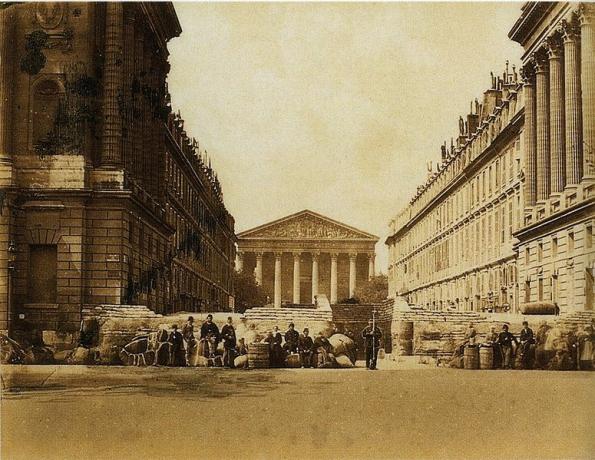
Workers-based revolutionary government was – and still is – the dream of progressive workers throughout history. For this ideal was achieved, if only for a short time, in France. This is the Paris Commune.
see more
Scientists use technology to unlock secrets in ancient Egyptian art…
Archaeologists discover stunning Bronze Age tombs in…
The Paris Commune began with the Parisian proletarian revolution and represented the first attempt to create and implement a socialist government. Called the “communards”, Parisian revolutionaries seized power in a popular uprising of a spontaneous and organic nature aimed at socialism.

It comprised the period between March 18 and May 28, 1871 and had strong Marxist influences and other leftist currents. In those forty days, he replaced the republican government in acts characterized by the principles of the First International of Workers of the masses and revolutionary groups, in addition to self-management.
With the end of the war between France and Prussia and the consequent surrender of Napoleon III, the situation in Paris became practically unsustainable. From then on, the Third Republic was instituted, which lasted from 1870 to 1940, with Adolphe Thiers at its head for seven years. Surrounded by the Prussians, the city lived under constant tension, discomfort and revolt.
Even though royalist deputies supported the surrender, the petty bourgeoisie and proletarians disagreed. Political pressure caused a popular insurrection to break out in March 1871, whose main consequence was the overthrow of the republican government. Supported by the National Guard, they expelled the loyalist forces.
There began the Paris Commune, a government led by Jacobins and socialists. It was instituted on March 26, through democratic elections by about ninety members, many of them belonging to the First Workers' International. Power would be centralized by the Guard, administration by officials, and factories by workers.
The main ideal of the Paris Commune was to promote the improvement of living and working conditions for the working classes and low-income workers. Therefore, its measures aimed to meet the desire of these classes.
The bourgeois government was ousted from power by the Paris Commune and obviously they would not sit still. Therefore, they organized a reaction against the revolutionaries supported by a strong police and military apparatus.
With that, the leaders and members of the Commune were arrested or executed, promoting the resumption of power by the bourgeoisie on May 28, 1871. The first experience of a socialist and revolutionary government composed of workers was coming to an end.
The first revolutionary experience was in Paris, but other French cities managed to structure workers' governments, albeit for a short period of time. As an example, we can mention the cities of Toulouse, Marseille and Lyon.


